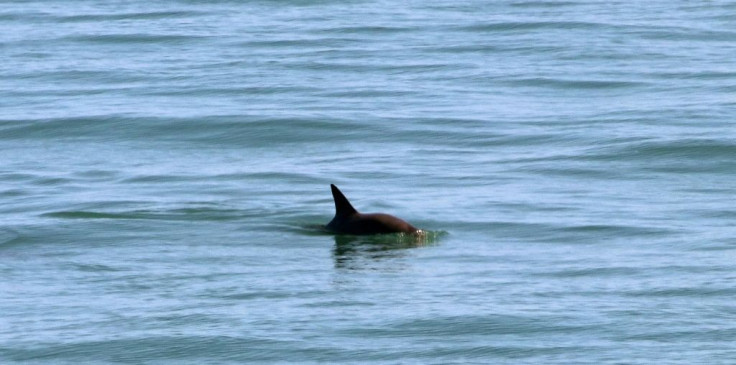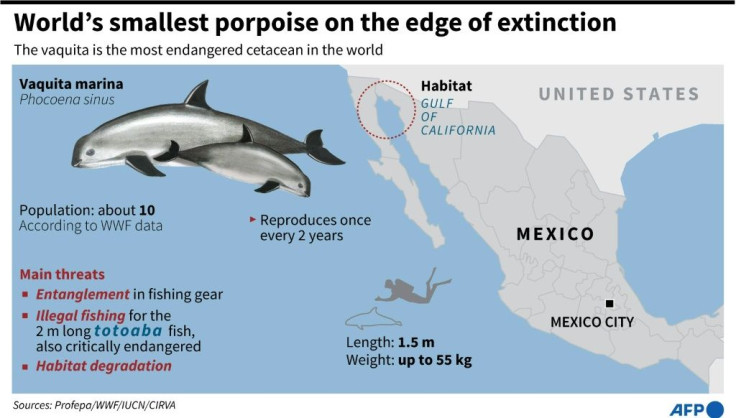Mexico Announces New Plan To Protect Near-extinct Porpoise
The Mexican government on Wednesday announced new measures that it said were aimed at saving the critically endangered vaquita porpoise, the world's rarest marine mammal.
Authorities said the objective was to improve surveillance and supervision of fishing in the northern Gulf of California -- the only place in the world where the vaquita is found.
Potential actions include the partial or total closure of a vaquita sanctuary in the Gulf to fishing boats for up to one month, the National Aquaculture and Fisheries Commission said.

But that will only happen if more than 60 unauthorized vessels are seen in the sanctuary's core "zero tolerance area" in a single day, according to the regulations published in Mexico's official gazette.
Otherwise the authorities will pursue a policy of monitoring, surveillance and deterrence -- a reflection of the difficulties they have faced enforcing a ban on commercial fishing in the heart of the refuge.
Conservationists have been involved in a number of violent confrontations with fishermen while working with Mexican authorities to remove illegal nets.

Mexico has long faced pressure to do more to protect the vaquita, the world's smallest porpoise, known as the "panda of the sea" for the distinctive black circles around its eyes.
According to conservationists, there are believed to be only 10 vaquitas left.
The porpoise has been decimated by gillnets -- which in theory are banned in the upper Gulf of California -- used to fish for another species, the endangered totoaba fish.
The totoaba's swim bladder is considered a delicacy in China, and can fetch tens of thousands of dollars on the black market.
Mexico's announcement came days after the UNESCO World Heritage Center expressed concern that the vaquita was in danger of disappearing forever unless "decisive action" is taken.
The Gulf of California's islands and protected areas became a UNESCO World Heritage site in 2005.
Their state of conservation is due to be reviewed later this month at the 44th session of the World Heritage Committee.
© Copyright AFP 2024. All rights reserved.





















